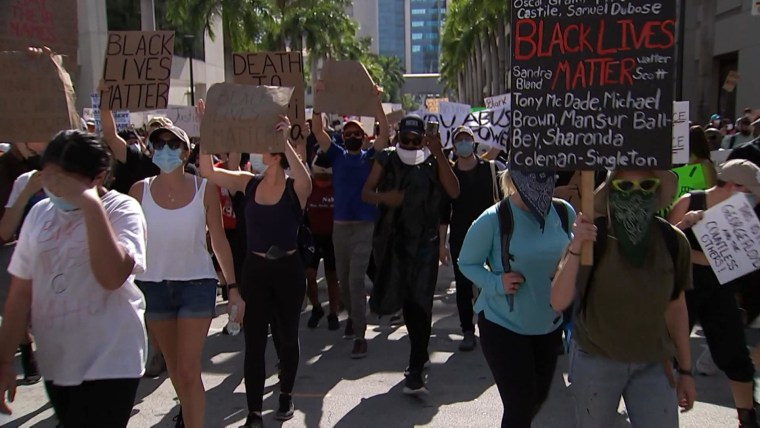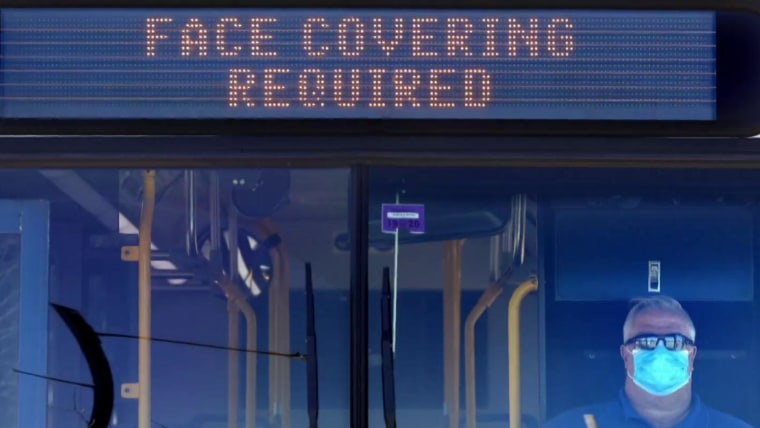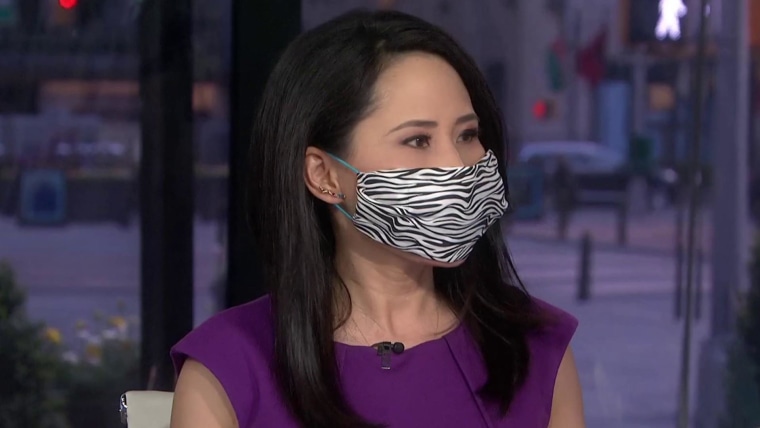How To Keep Your Face Clean From Pimples
Masks are an important part of reducing the spread of the coronavirus (in addition to proper hand hygiene and social distancing). Ever since the Centers for Disease Control and Prevention recommended mask use for civilians earlier this year, people across the country have started making their own masks at home with everyday materials.
It's easy enough to do with a piece of leftover fabric from an art project or even by cutting up old sheets. But unlike medical masks, homemade ones don't come with directions. Here are answers to common questions about face masks.

How often should you clean your face mask?
While there are "no hard and fast recommendations," it's generally safe to wear one multiple times without washing it, Dr. William Schaffner, medical director of the National Foundation for Infectious Diseases in Bethesda, Maryland, told TODAY.
A weekly wash should be fine if it's not soiled, he said, adding: "You shouldn't be using them all that frequently. You're only going out to the pharmacy and supermarket."
NBC News contributor Joseph Fair, who is a virologist and epidemiologist, recommended washing after every two uses.
You should also clean your mask immediately if you're in the presence of someone symptomatic, Dr. Nathan Favini, medical lead of Forward, a primary care practice in San Fransisco, previously told TODAY.
Another advisable cleaning practice for masks: Make more than one so you can wash them regularly and not be left without one when you need it, Fair said.
How should you clean your face mask?
Again, while there are no standard recommendations on how to clean your mask, Schaffner recommended throwing it in with the rest of your laundry.

Do you need to wear a face mask every time you leave the house?
Because the mask recommendation exists to prevent yourself from exposing other people, you should wear a mask in situations where you're likely to come in contact with someone else, especially in close quarters. But during a walk or run outdoors in an uncrowded area, it's fine not to wear a mask, Schaffner said.
"If you're going to the supermarket, you should wear a mask," he stressed. "There's no doubt about that."
What are the best fabrics for your mask?
An effective homemade fabric face mask will filter out virus particles while allowing you to breathe. According to recent research, some fabrics from around your home can filter out 79% of particles, NBC News reported. For context, surgical masks only filter out 62 to 65%.

In the study, the most successful masks were made of two layers of heavyweight "quilters cotton" with a thread count of at least 180 and a thicker, tighter weave. One of the researchers, Dr. Scott Segal, chair of anesthesiology at Wake Forest Baptist Health in Winston-Salem, North Carolina, recommended woven fabrics over knits and discouraged using ones with bleach and other harsh chemicals.
When in doubt, check to see how much light can pass through the fabric. If a lot can get through, then assume the virus could, as well.
What items can you use to make a face mask?
In order for a face mask to be effective, it must be large enough to cover your nose and mouth. Fair recommended using a pillowcase because it gives "fairly complete coverage."
Old sheets or a T-shirt could also do the trick, as would a bandana if you fold it so it covers your face correctly. Just remember to check how much light passes through the material. The less, the better.
Do you need to wear a mask if you've tested negative for the coronavirus?
While this situation doesn't apply to too many people, yes, you need to wear a mask even if you've tested negative. Why? You could've contracted the virus since you were tested, and research shows false negatives do happen.
Additionally, "we all need to set examples for others," Schaffner said.
Do social distancing recommendations change if you're wearing a mask?
This is perhaps the most important point amid changing mask guidelines: Wearing a mask does not eliminate the need for social distancing.
Schaffner stressed how wrong it is to think anything else: "(Some people) will say, 'OK, we'll all wear a mask or bandana or homemade mask, and now we can have a birthday party.' No, no, no."
So, continue to stay home as much as possible, and when you do go out to complete an essential task, continue to maintain 6 feet of distance from other people — and wear a mask. Public health officials discourage purchasing surgical or N95 masks as they are in short supply and needed by health care workers.
"A mask is not to protect you or to allow you to come close (to) people," Fair said. "It is to protect against (asymptomatic and presymptomatic) transmission."
Maura Hohman is a Brooklyn-based staff editor and reporter for TODAY Digital who joined the team early in the coronavirus pandemic. While she happily writes about a range of topics, from pop culture to politics, she has a special interest in in-depth health coverage, especially COVID-19 research, women's health and racial health disparities.
How To Keep Your Face Clean From Pimples
Source: https://www.today.com/health/how-keep-your-coronavirus-face-mask-clean-t177735
Posted by: arguetamonatur.blogspot.com

0 Response to "How To Keep Your Face Clean From Pimples"
Post a Comment